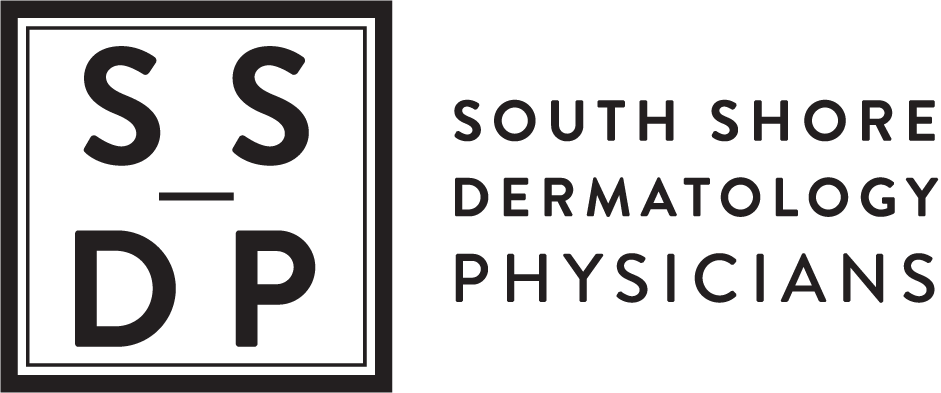Teen Acne—When Is It Time to See a Dermatologist
Pimples. Cysts. Blackheads. Whiteheads. No matter what you call them, the signs of teenage acne are unsightly and often embarrassing. They may also lead to permanent scarring. Luckily, preteens and teens have many effective options for treating troubled skin.
What exactly is acne and what causes it?
Acne is an inflammatory condition of the skin that begins during puberty and consists of clogged pores, pimples, cysts, or nodules that are usually located on the face, neck, chest, back, or shoulders. Factors that contribute to development of acne include:
Overproduction of oil by sebaceous glands stimulated by male hormones (androgens)
Blockage of hair follicles by dead skin cells that do not exfoliate properly
Overgrowth of acne-causing bacteria (some strains of C. acnes) within hair follicles
Treatment Overview
Treatment regimens include targeting bacteria, inflammation, oil production, or skin exfoliation. Depending on the type of acne, treatment may include some or all of the above.
In general, everyone who is experiencing acne outbreaks should follow a gentle skin regimen. Doctors at SSDP recommend using a gentle cleanser once or twice a day, such as Cetaphil or CeraVe. Avoid using harsh toners and scrubs, as these will irritate acne-prone skin. Always apply an oil-free, non-comedogenic moisturizer in the evening and in the morning (even skin that is oily needs to be moisturized regularly). Use a non-comedogenic sunscreen when outdoors.
If you have mild acne, characterized by whiteheads and blackheads in a limited area, such as the T-zone on your face or your upper back, you may be able to clear it up with over-the-counter medications. Body washes that contain salicylic acid or benzoyl peroxide are great for mild acne on the chest, back, or shoulders, and can be used daily in the shower. Differin gel used at night on the face will help to exfoliate the skin and keep your pores clear. You can combine an acne wash with Differin gel, but expect some peeling to happen for the first two weeks of use. This is where avoiding overwashing and over-scrubbing your skin, as well as using moisturizer, is very important. Over time, your skin will adjust to the medication and peeling will subside. If you experience irritation, burning, or itching, discontinue the medication and contact your dermatologist.
If acne does not resolve with over-the-counter treatments; if it is moderate to severe, with many pimples, cysts, or deep nodules; or if you have acne that leaves scars when it heals, you should see a dermatologist to find the right treatment for you. There are many effective acne regimens today, including prescription topical medications, oral antibiotics, and oral isotretinoin. At SSDP, we find that Blu-U Light Therapy and chemical peels, when added to traditional topical or oral therapy, are increasingly popular for people with moderate and difficult to control acne. Blue light kills acne-causing bacteria and produces improvement after just a few treatments. Chemical peels may be used to unclog pores and reduce inflamed acne bumps.
Sunlight and Acne
You may have noticed that your acne improves in the summer, and may wonder whether sunlight exposure has something to do with it. In fact, it does. The mechanism is the same for Blu-U Light therapy—strong visible light (but not ultraviolet light) will kill acne-causing bacteria. However, we strongly recommend against exposing your skin to the sun due to the potential harmful effects of ultraviolet radiation.
If you want some of the positive effects from sunlight for your skin, you may apply SPF 30 sunscreen to the affected area and sit in a sunny room near a closed window for 20 minutes. The sunscreen and window will block out the ultraviolet radiation, but you will still get the visible light exposure from the sun. This will only work when the sunlight is strong enough, so in our hemisphere, that means between the months of May and September.
Diet and Acne
Many of you have heard that greasy fried food, chocolate, and dairy products can worsen, or flare acne. This is true to some extent. Studies have shown that diets high in sugar, dairy, and processed carbohydrates do have a negative effect on acne. Sugar and processed carbohydrates increase levels of insulin and insulin-like growth factor, which increase levels of inflammation in your body. This can have a negative effect over time on the skin as well. Whey protein in dairy products can increase levels of androgens or male hormones, which in turn worsen acne in those people who are susceptible.
Cocoa itself may or may not have an effect on acne. Studies in this area have been equivocal. It is more likely that the sugar in chocolate-containing foods is the culprit in most cases. At SSDP, we recommend consuming a diet that contains plenty of vegetables, lean protein, whole grains, and fruit, as well as minimizing or avoiding processed food, sugar, and dairy products. If you like dairy, whole milk and yogurt are recommended over their low fat counterparts. A well-balanced diet will go a long way in maintaining beautiful, healthy skin.







